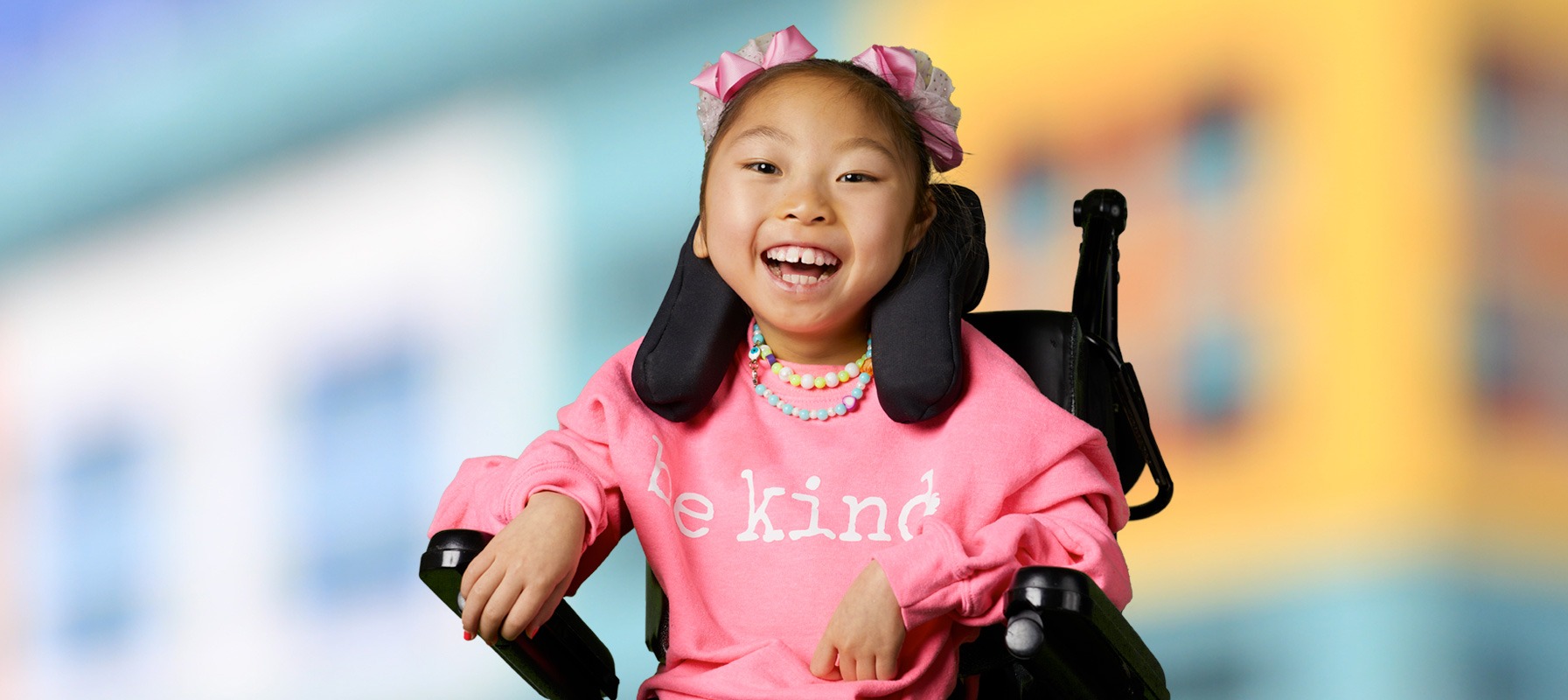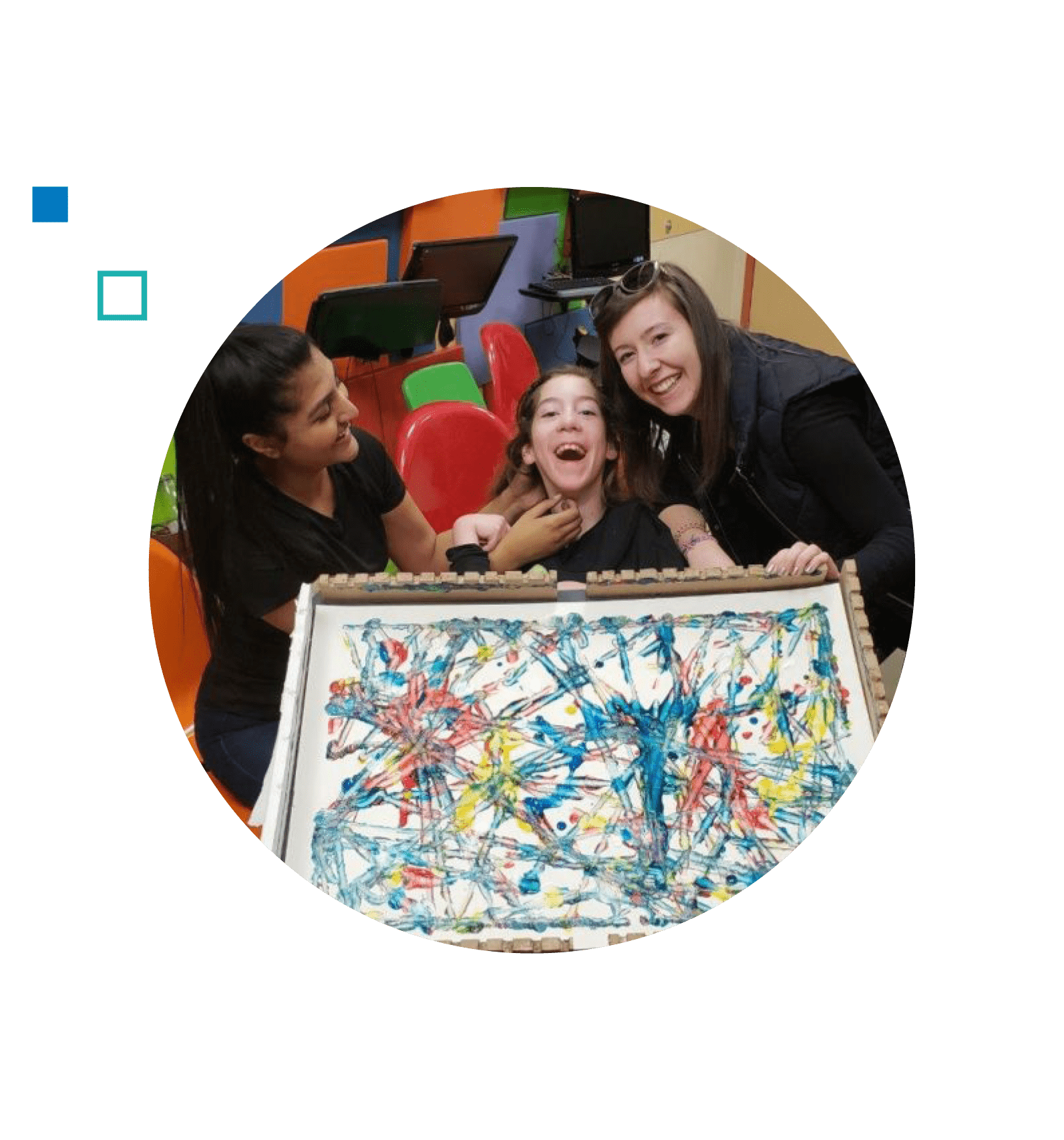Meet Nina
Maggie and Dario had just one hour’s notice that a birth mother had chosen them to adopt her newborn baby. Filled with excitement, they rushed to meet tiny Nina and welcome her into their family. It was only in the months ahead that they would learn their sweet baby girl had a brain malformation which prevents her from being able to walk, talk, sit or eat on her own.

Over the past nine years, a team of specialists at the Alberta Children’s Hospital has been helping Nina with her muscle tone, range of motion, pain management and communication. While Maggie and Dario have always known “Team Nina” is focused on helping their daughter live her best life, a new community-funded research program at the hospital has opened the door to opportunities they never dreamed possible for their little girl.
“BCI4Kids” uses brain computer interface technologies that recognize and “translate” changes in Nina’s thought patterns into computer-powered action. Wearing a special headset, Nina thinks certain words that signal the BCI to control computer devices like on/off switches or a computer mouse. For the first time in her life, Nina is able to use her brain to do things her body cannot. Maggie and Dario say it’s like BCI has given her virtual hands.
“The first thing she did was turn on a disco light while we blasted her favourite song – Mamma Mia,” says Maggie. “We cried with joy and honestly couldn’t believe what we were seeing.”
Advancing Care
Brain Computer Interface Technology
This donor-funded technology is opening up a new world of opportunities for kids, allowing them to interact in ways their parents never dreamed possible.
READ MORE
When Covid-19 hit, the team developed portable kits enabling children in the program to practice their skills and work their “BCI muscles” at home. Even though Nina only started using BCI late last fall, she can already play songs on her computer, beat her brother at video games, and since just before Christmas – move her wheelchair on her own!
“This is showing us just how strong Nina’s mind really is,” says Dario. “Both her older brother and I have tried BCI. It’s exhausting. She is way better at it than we are!”
“When we first received Nina’s diagnosis, it was the most traumatic day of our lives,” says Maggie. “We thought we would only be able to take her home and love her. Now, she’s doing things we never imagined possible. We believe this will change her future.”
Thanks to generous community support, world-first research in Brain Computer Interface (BCI) for kids is underway at the Alberta Children’s Hospital. These experts will gain the knowledge and expertise to help unlock the world for otherwise silent children to engage with their families — and their world — in new and exciting ways. Learn more.
Make a Donation
Your gift, no matter how large or how small, makes a big difference!



